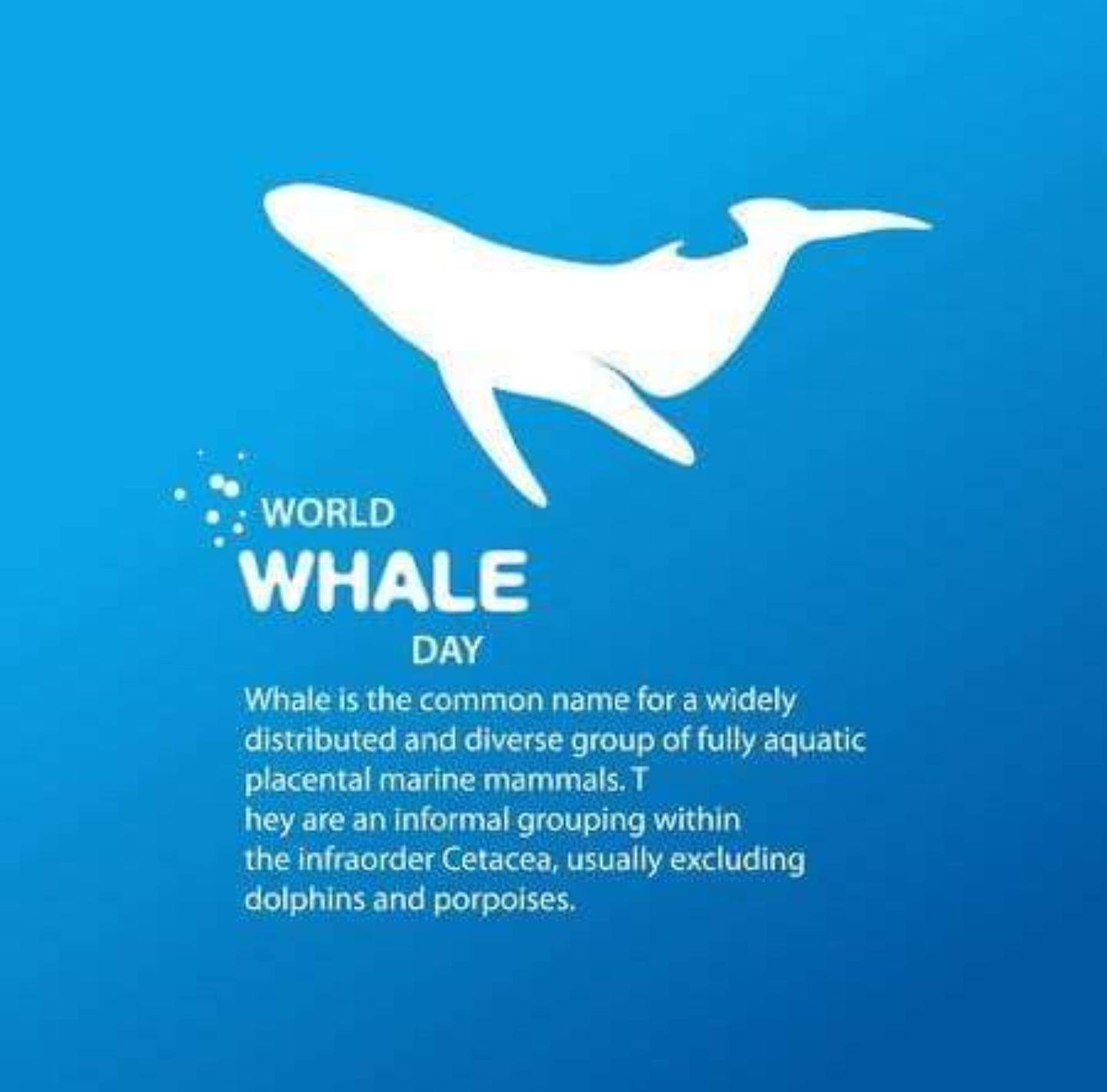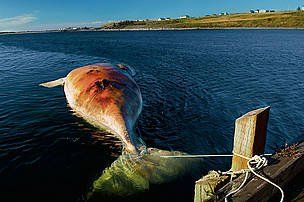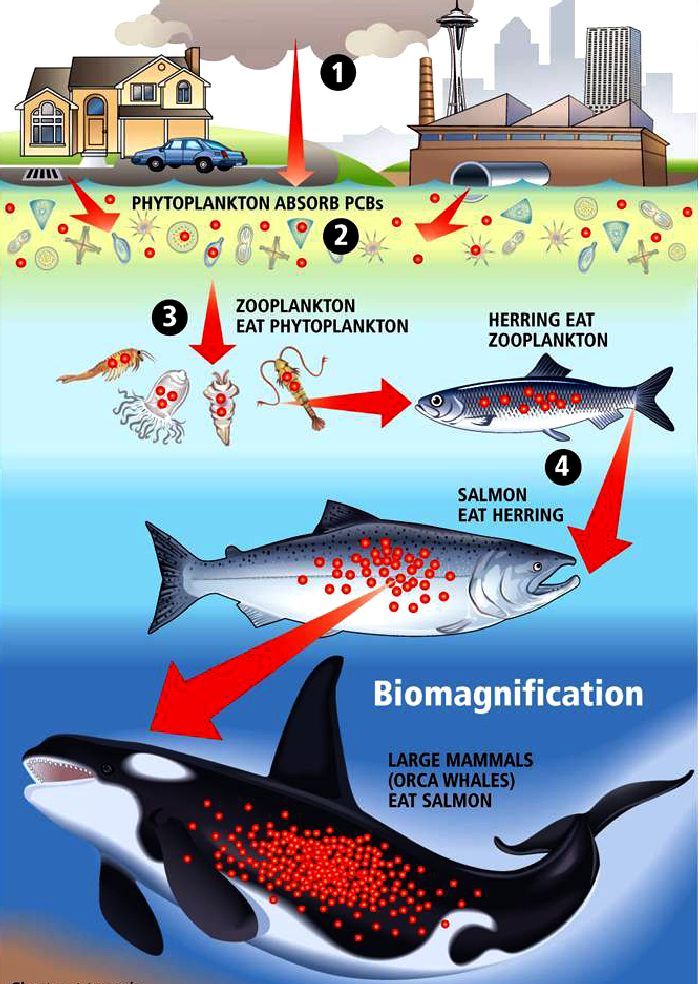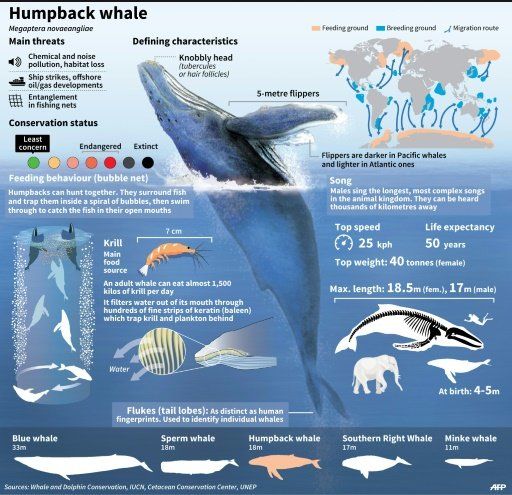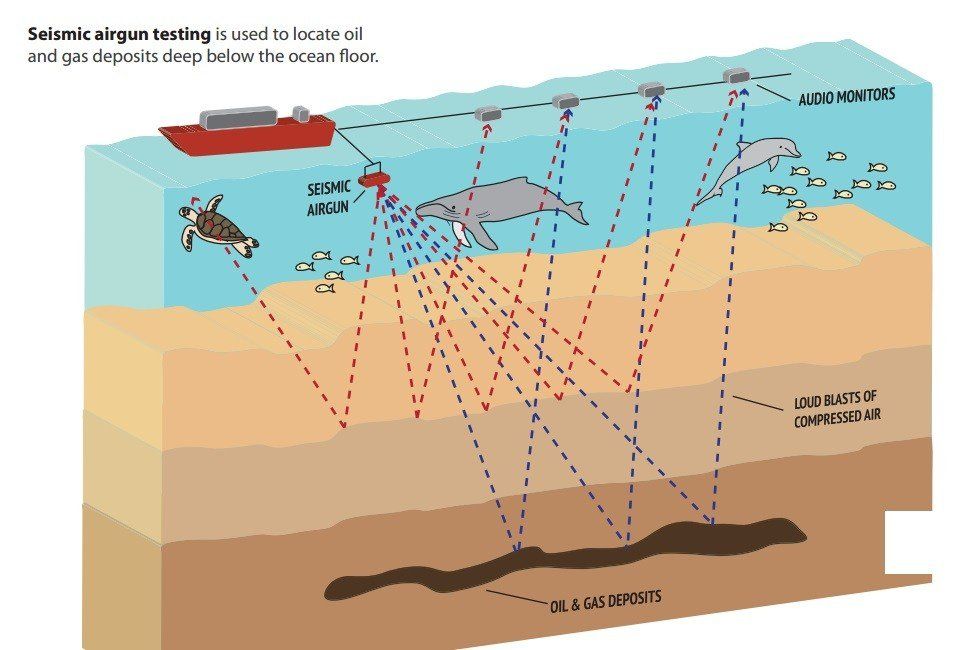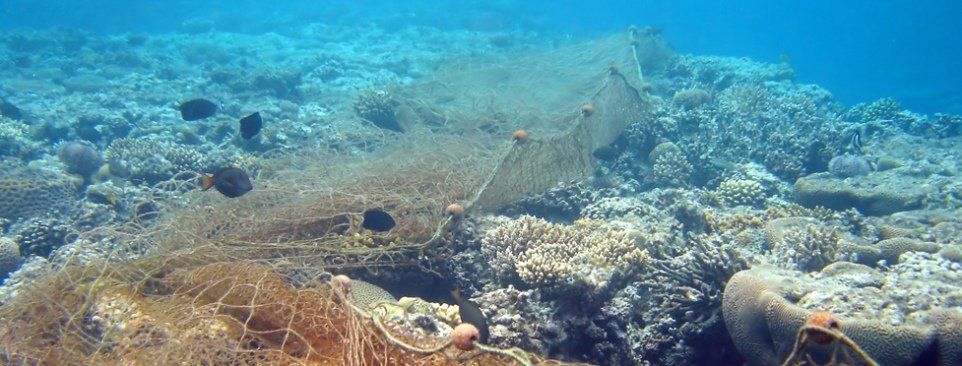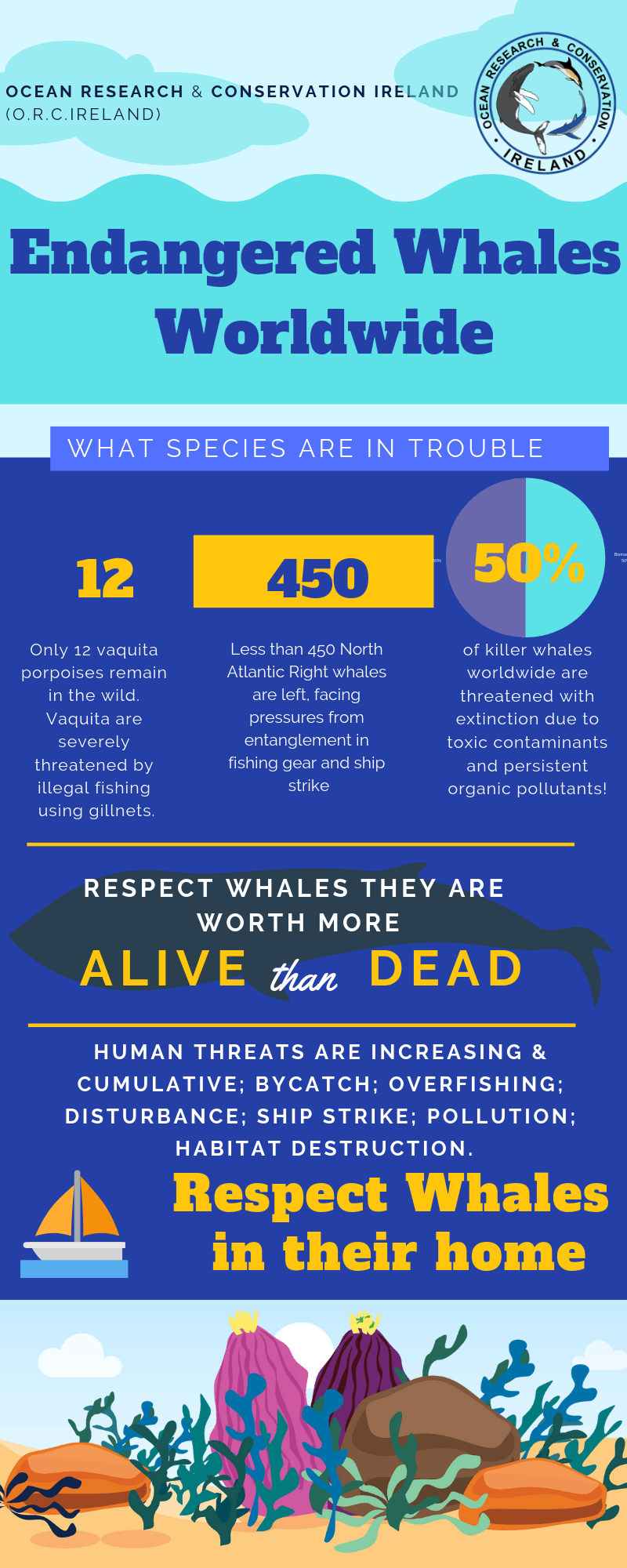World Whale Day - Global threats to whales populations.
Forget Valentines Day, at ORC we celebrate "Whalentines Day", -or World Whale Day every February. It is no "fluke" that we fell in love with these ocean giants, and for World Whale Day we aim to raise global awareness of the continuing need to protect whales from human impacts. The ocean's most charismatic and iconic mammals face a combination of human induced pressures that to this day are driving species to the brink of extinction.
As a "for-impact" organisation Ocean Research & Conservation Ireland (O.R.C.Ireland) aims to educate the public and interested stakeholders on marine conservation issues and the numerous threats to our ocean's wildlife. Whale's worldwide face a number of challenges with human encroachment on the marine environment ever prevalent, between entanglement in fishing gear (bycatch), ship strike, pollution, habitat degradation, overfishing, whaling, oil and gas development and climate change.
World Whale Day:
Why are whales important to protect?
Whales are known as keystone species, having an important role in the balance and healthy functioning of marine ecosystems, asserting a top down control on the food chain and fertilizing our oceans, allowing the production of phytoplankton and the creation of more than 50% of the oxygen we breathe.
Through the movement of whales up and down the water column, zooplankton and fish are recirculated to surface waters in the form of nitrogen rich fecal matter. These nutrients are essential to the primary production of the marine ecosystem. They also fertilize the deep sea, through "whale fall", when a whale's carcass sinks to the seafloor and provides nutrients to a variety of scavengers.
Whale's are indicators of ocean health, as top-predators at the top of the marine food web, any change in their population status is an indication of changes in the ecosystem. Whale's are cosmopolitan found in all the world's oceans, from the deep sea to coastal bays. Whale's also face threats of disturbance from whale watching, but sustainable whale watching can greatly contribute to local coastal economies around the globe, thanks to people's growing interest in whales. These animals are so important for ocean health yet 7 out of 13 great whales are endangered.
Threats to Whales:
Bycatch and Incidental capture in fishing gear.
Ship Strike
Collisions between cetaceans and vessels – known as ‘ship strikes’ or ‘vessel strikes’ – are a significant cause of death and traumatic injury.Tackling this threat to the world’s cetaceans is hampered by the fact that under- or non-reporting of ship strikes is still the norm around the globe. Since 2009, more than 1,200 incidents have been reported to International Whaling Commission (IWC). Most reports of collisions between whales and vessels involve large whales, but all species can be affected. Collisions with large vessels often go unnoticed and unreported. Animals can be injured or killed and vessels can sustain damage.
Pollution:
Plastics and toxins such as persistent organic pollutants (POPs) and endocrine disrupting chemicals (EDCs) have been shown worldwide to impact the health of cetaceans. These toxin levels may be so high to hinder both reproduction and immune systems of cetaceans. Researchers originally believed that toothed whales, dolphins and porpoises were at greater risk because they are higher on the food chain and therefore would be more prone to bioaccumulating toxins. Current research is showing, however, that the baleen whales are also be negatively impacted by toxins and pollutants.
Climate Change
Changes in meteorological and oceanographic variables leading to sea temperature increases in the polar regions threatens the ecology of many cetacean species on Arctic and Antarctic feeding grounds. The narwhal, beluga and bowhead whale, found in the Arctic year round are in particularly affected and shifts in species ranges are evident with sighting of late of both beluga and bowhead whale in Irish waters and may be affecting migration patterns of large migratory whale species such as the Humpback whale.
Oil and Gas Industry
Three distinct threats are evident from human activities involving the oil and gas industry; habitat loss, direct or indirect injury to cetaceans which can lead to temporary or permanent hearing loss or even mortality and pollution. Oil and gas exploration and extraction may cause disturbance to cetaceans in important habitats for feeding, resting and breeding. Seismic surveys in particular have been shown to cause serious damage to cetaceans hearing. in 1992, humpback whales off Newfoundland, Canada were found stranded with damage to their inner ear structures following underwater blasting used in constructing oil installations. Seismic blasting by the oil industry in Alaska has also been found to damage the hearing of whales in the area. Toxins and pollutants released into the environment relating to the oil and gas industry also poses a serious health risk to cetaceans.
Habitat destruction
:
Destruction of critical habitat for cetaceans is directly linked to increasing human activity in the marine environment, from harbours, landfills, shipping channels fisheries and aquaculture, to recreational use of marine areas, including resort development and increased boat traffic. All of the aforementioned anthropogenic activities can cause cetaceans to avoid important breeding and foraging areas or cause direct damage to the marine ecosystem.
Most Endangered Species
At the top of the food chain, whales are vital to the health of the marine environment yet 7 out of the 13 great whale species are endangered or vulnerable. Species include the blue, the bajii, the bowhead, the fin, the sei and the beluga whale but perhaps the most critically endangered species remains to be the vaquita, the North Atlantic Right whale and the grey whale.
SHARE THIS ARTICLE






